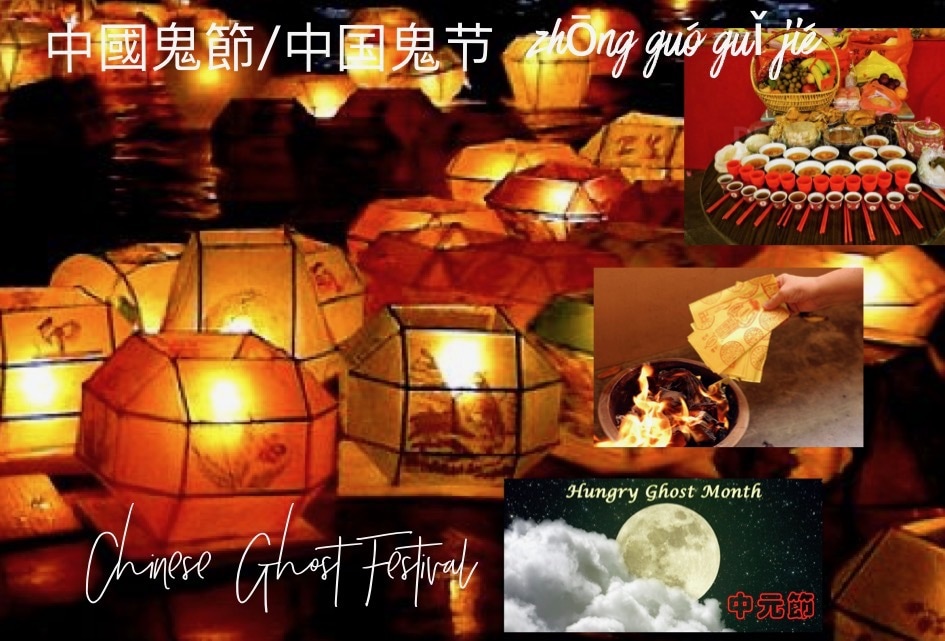中元节/鬼节日期:每年阴历七月十五日
意义:中原普渡、祭祀祖先及孤魂、祈求平安 现代庆祝活动:普渡、放天灯 |
Ghost Festival/Hungry Ghost FestivalDate: July 15 in Lunar Calendar each year
Meaning: Worship in Ghost month to ancestors and the deceased for a peaceful life. Nowadays celebration: Worship; Float Chinese Lotus Lantern in a river. |
|
中国鬼节和西方的万圣节有不少相似之处,因此也被称为中国的万圣节。鬼节,俗称中元节,是中国的民俗节日,是道教在阴历七月十五日晚上的节庆,被称为“鬼日”,整个七月就叫做鬼月。
The Chinese Ghost Festival has similarities to what we in the United States call Halloween – and is sometimes called Chinese Halloween. The Ghost Festival (Zhongyuan Jie) is a traditional Chinese holiday and Taoist festival celebrated on the 15th night of the seventh lunar month. The 15th day of the seventh lunar month is called “Ghost Day,” and entire month is known as “Ghost Month.” (Read more from the Taoism expert, Elizabeth Reninger here) |
|
|
|
|
|
|
